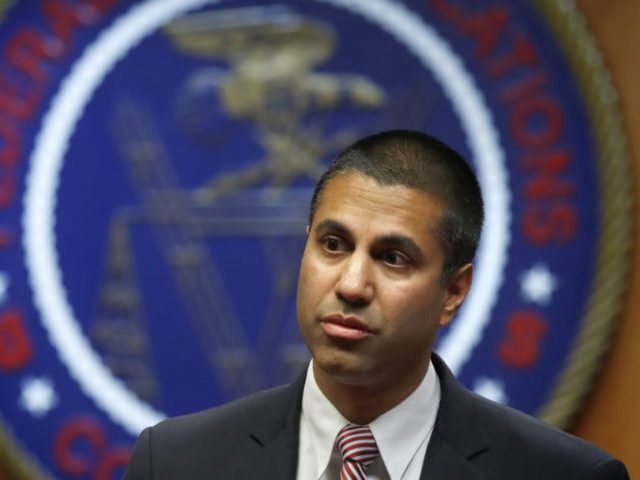Trump administration officials recently met with executives from technology companies to discuss a radical plan to accelerate the buildout of an ultra-fast 5G wireless network.
While the administration is not considering nationalizing the nation’s wireless infrastructure, officials are moving ahead with discussions to build a 5G network outside of the traditional wireless carriers, according to people familiar with the matter. These officials have met with some of the biggest technology companies to discuss a fast, nationwide rollout of a 5G network.
The plan has evolved since the drafting of a memo published Sunday night by Axios, these people said. Even the original version did not advocate “nationalization” or having the government run a wireless network, they said. Instead, the earlier idea was to have the government sponsor the building of a 5G network that would be owned and operated privately. On Monday, Recode reported that administration officials said the Axios memo was outdated.
The plan recently discussed would have the government award a huge block of spectrum to a company outside of the traditional bidders for wireless spectrum, such as telecom giants AT&T and Verizon. The new spectrum owner would then be responsible for building the network, most likely contracting with American manufacturers for domestically made hardware and software. The administraiton remains concerned that foreign components, especially those made in China, could contain malware that could be used compromise the security, privacy, and integrity of the network.
The administration was seeking to partner with a technology company outside of the traditional telecom industry because officials believe that a fast build of the network would require such a large amount of broadband that awarding it to a single telecom company would amount to giving a government granted monopoloy to one of the big players. In the model now under consideration, the owner of the network would not directly provide telecommunications services to consumers. Instead, it would build and maintain the network and rent access to the likes of AT&T and Verizon.
Government officials do not believe that this is “nationalization.” Under the plans now being considered, the government would not be creating an agency to build a network or to run it.
“I oppose any proposal for the federal government to build and operate a nationwide 5G network,” FCC commissioner Ajit Pai said Monday. “What government can and should do is push spectrum into the commercial marketplace and set rules that encourage the private sector to develop and deploy next-generation infrastructure.”
The plan presented to technology companies recently would do just that, according to a person familiar with the matter.
Traditional carriers are still likely to oppose the network, since they prefer the current system, under which they bid for long-term leases of spectrum and can keep any excess profits for themselves. Under a system in which the spectrum is built and controlled by a middle-man, carrier profits would likely be lower. It would, however, likely lower prices for consumers, according to supporters of the plan.
It might also encourage more innovation, inviting companies such as Facebook and Google to purchase the spectrum and provide it directly to their users
“Put this together with the end of net neutrality, and you have the beginnnings of a system where someone like Facebook buys spectrum and gives it away their users to incentivize spending more time on Facebook,” a person familiar with the ideas behind the plan said.

COMMENTS
Please let us know if you're having issues with commenting.